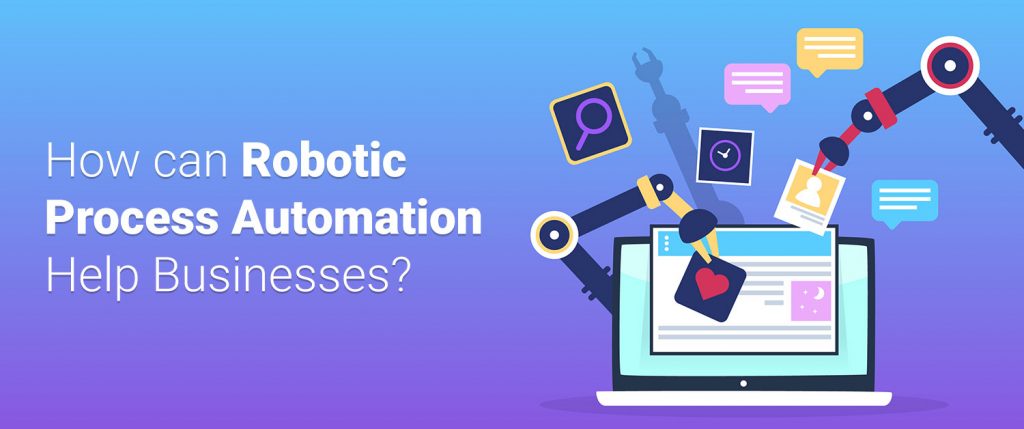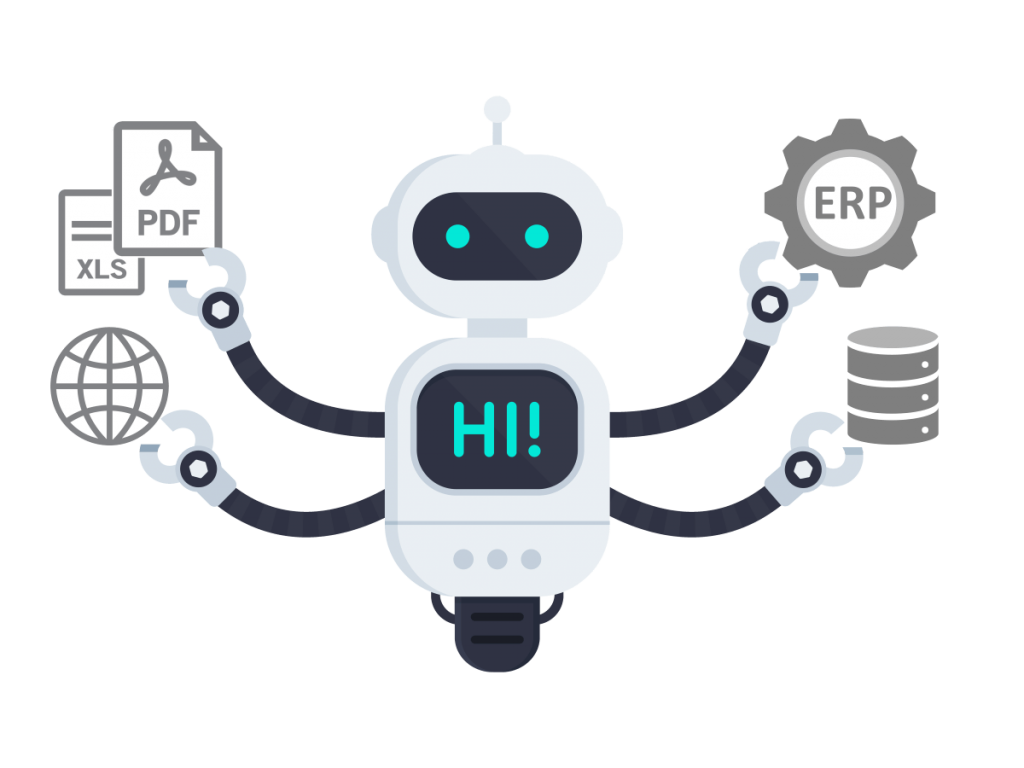
How can Robotic Process Automation Help Businesses?
In a modern-day company efficiency is everything. The biggest question every company needs to ask itself is how they can maximize their profits and productivity by using their resources optimally. Smart businesses spread out their human and IT resources and try to make the best out of them. And that is why it is imperative that you, as a company, regardless of your industry, start thinking about bringing Robotic Process Automation (RPA) into your folds.
The reason behind it is that RPA allows you to speed-up things inside your institution while making it more efficient.
How’s that possible?
We know it sounds too good to be real, but it’s not. RPA automates what can be automated, tasks that don’t need human cognition and are repetitive. The advantage of having robots do these tasks is that they can do it faster than a human. Robot software frees up your human resources, who otherwise would have been stuck doing the same thing repeatedly, and they can put their efforts in tasks where human intelligence is required.
So now, you’re faster, and you’re more productive. Talk about two birds with one stone, huh?
From the healthcare industry to logistics, pretty much every industry can benefit from RPA, and we will see today what some of its most prominent benefits are, but before we get to that, we need to learn a little more about RPAs.
What is an RPA?

RPA is a virtual and robotic workforce that is controlled by you, and its prime job is to mimic human behavior in tasks that don’t require humans at all. These software robots execute boring and repetitive tasks and do them more quickly and efficiently.
Usually, a human knowledge worker takes data from a source system and runs it through a set of fixed business rules and enters the outcome into the target system. This is what’s knows as a swivel task in the IT industry.
By introducing RPAs in your company to do these swivel tasks which don’t need humans and are repetitive, not only can you speed up these tasks and free your employees to work on other more complex tasks, but you don’t have to invest too much in them as well. These RPAs can work very easily with your existing infrastructure, so you don’t have to invest in new infrastructure.
What can RPAs do?
Broadly speaking, RPAs can extract data from common databases and routines, commit data entry procedures in workflow processes, and make static-decisions. Some of the tasks that can be done by a software robot are:
- Data entry
- Get User Inputs
- Reconcile Data
- Respond to emails
- Apply static business rules
- Others
Can you use an RPA?
While having an RPA sounds fantastic and useful, not every process can use them. You need to identify sections of your business workflow that can benefit from throwing an RPA in the mix. The processes that can have a use for an RPA must have the following characteristics:
- Rule-based
- Low System Change
- High Transaction Volume
- Readable Electronic Inputs
- Firm and Well-defined processes
- Structured Data
What are the Benefits of an RPA for a business?
Now that we know what RPAs are and what they are used for, let’s look at some of the key benefits that they have to offer to modern-day businesses.
- The most significant benefit of RPAs is that they allow you to use your human resources more economically and efficiently. With them taking the duty to handle swivel tasks, your workforce is free to do other tasks that require their cognitive skills.
- It is cheaper to get a robot to do things for you than it is to assign a human resource to it because you have to pay him a full day’s wage to do the same job over and over. At the same time, this robot software will do it with just a one-time investment.
- Robots are not only cheaper but faster than humans as well, at least in this case. All these swivel tasks can be done by an RPA in manufacturing almost instantaneously, which means it will give you more time to market.
- Without humans present in the process, there are no human errors. RPAs don’t make mistakes. So no incorrect data entry, nothing that can jeopardize your company’s efficiency can happen.
- RPAs make humans more productive because they are doing things that actually need them, but they increase the productivity of the entire company. Robots don’t take breaks. They work 24/7 with very little downtime so your work never stops.
- It changes your entire operation from being labor-centric to technology-centric.
- According to your needs, you can scale up and down your RPAs to take more or less work under their wings.
- RPAs help companies by ensuring regulatory compliance.
Read More: Discover how integrating RPA in business streamlines operations, enhances efficiency, and drives growth in the digital age.
Conclusion
According to a survey conducted by Deloitte, payback for RPAs was achieved in around 12 months, with an average of 20% of FTE capacity provided by RPAs. Furthermore, RPAs improved compliance by 92%, quality by 90%, reduction by 59%, and increased productivity by 86%. These numbers indicate that no matter what industry we talk about, everyone is moving towards RPAs adoption and is expanding their involvement in their business workflow. And now is the right time for you to join everyone in the future as well and start making your company more efficient, effective, and overall more productive.
Looking for an RPA for your company, contact Matellio today!



